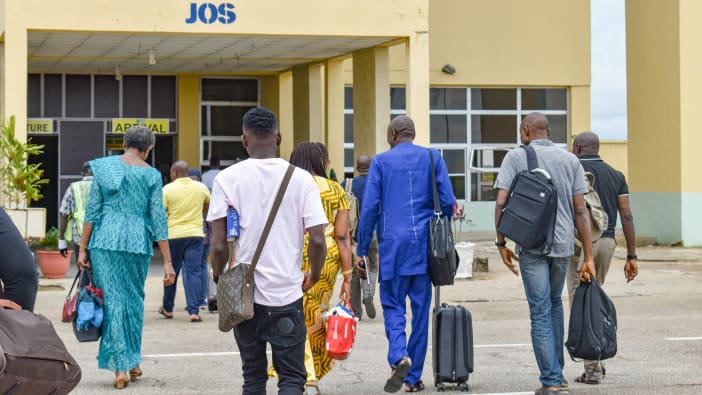The population of Bolivia consists of many ethnic groups and cultures. Inequality is common, resulting in poverty and lack of opportunities. In the rural mountain areas, agricultural activities are suffering due to unpredictable weather patterns and continuous periods of drought. Many people are therefore migrating to cities such as Oruro and Potosí. Unfortunately, these migrants are rarely able to find good employment because their low level of education and training does not meet the requirements of workers in the city.
Rural to urban migration
Entire families migrate from rural areas to the city, expecting to improve their lives.
Men look for work that will provide enough income for their families to survive in the city, taking any jobs that match their skills. These jobs include construction, loading and unloading produce in the markets, selling and cleaning cars, and working in the mines.
Women become involved in informal trade, such as selling low-value products in the streets. They also look for work cleaning houses or washing cars. In many cases, when they are unable to find work they become beggars, along with their children, on the city’s streets.
Children also play a major role in the family economy, and their economic contribution is estimated to be 30 per cent of the house - hold’s income. They start working in similar jobs as their parents at a young age, which means they stop going to school.
Mining is the main source of employment in the cities of Oruro and Potosí. Many mining companies do not take issues such as safety for workers into account. Mining also poses a high risk to the health of families in the city.
Families that have migrated from rural areas to the cities often become victims of human rights abuses and suffer mistreatment. They also suffer when they realise it is difficult to continue with their usual customs and habits.
The areas on the edge of the cities contain the highest number of rural migrants. They often lack social security support, basic sanitation and support in raising their children. Disappointment can lead to problems such as domestic violence and alcoholism.
Working with migrant children
Viva Juntos por la Niñez (Viva Network – Together for Children) is a programme that responds to poverty in Oruro and Potosí. With the support of Tearfund in Potosí, and of Toybox in Oruro, two projects have been developed, aimed at caring for children and adolescents in at-risk situations and preventing children from becoming at risk. These could be:
- migrant children
- working children, such as those working in the mines
- children living on the streets.
In Oruro, the aim of the Proyecto Encuentro Temprano (Early Encounter Project) is to reduce the number of children living on the streets, including those who have migrated from rural areas. As part of this project, preventive care centres are created in the local churches that are located in the areas of greatest need. These identify and work with the children in need before they become at risk.
The aim of the Red de Desarrollo Integral Familiar (Network for the holistic development of families) project in Potosí is to work with children who live on the edge of the city. The project provides opportunities for them to fully develop their skills, and gives their families training and education through support centres.
Both projects work through local churches. These churches open their doors to serve these people in an holistic way. Support centres and preventive care centres have been created and are managed by local churches in strategic areas of the cities. These are the areas in each city where children are most vulnerable. In both cities, around 1,000 children are benefiting from the programme.
The children go to the churches three times a week. They receive training, education and support in different areas:
- health
- education
- counselling
- nutrition
- personal growth
- development of interests and skills
- spiritual development.
Work is also being carried out with the children’s families. For example, schools are being created for mothers and fathers. Family pastors in each church are working alongside the families. This work strengthens the family structure so that the family remains united.
Working together
The Viva Juntos por la Niñez programme works with churches and local authorities. We believe that by working together, families, organisations, churches and authorities can reduce the number of children on the streets and the risks that migrant children are exposed to.
We encourage networking between churches so that they can share about the activities they carry out as they address the problems of the children and their families.
Viva Juntos por la Niñez considers the family and the church to be the fundamental pillars that enable children and adolescents to achieve God’s perfect plan for their lives. Churches can reach children and families, whose dreams of a better life have been shattered, with a message of transformation and hope, serving as an effective voice for the promotion of justice for children at risk.
Inés Caballero is the Andean region consultant for Viva Network – Latin America
Email: [email protected]








